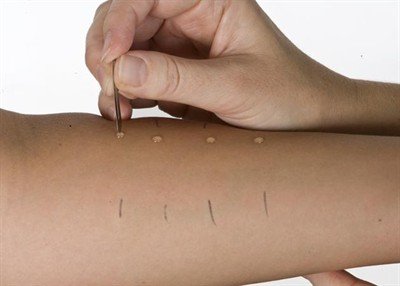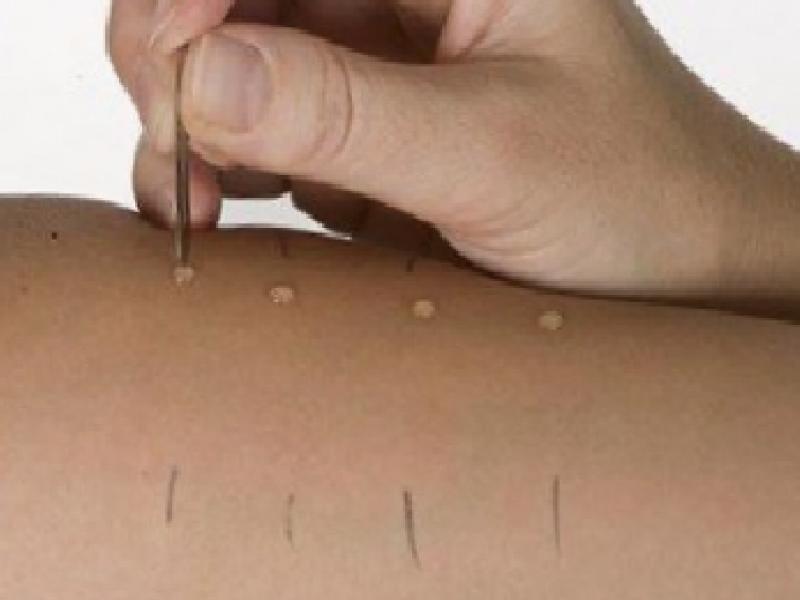
You sneeze, cough and have a wheezing in your chest… Your eyes are itchy and your nose is runny… The doctors you went to said you might be allergic… In such a case, it is to determine whether your complaints are allergic and to determine what you are allergic to. Some allergy tests may be needed to reveal it.
What is an allergy test?
If you are allergic, you are sensitive to a particular substance. Substances that cause an allergic reaction are called allergens. Which specific substances cause allergies in you can be safely and effectively determined by skin tests using small amounts of allergens by allergy specialists and, in some special cases, blood tests. After determining exactly what you are allergic to with allergy tests, the most appropriate treatment will be planned for you by your doctor.
Which allergens will I be tested with?
When your doctor thinks that you may be allergic, one or more substances may cause symptoms such as sneezing, coughing, wheezing, itching, and blistering. Your complaints are usually due to the following allergens:
Dust (pollen) from trees, grass, grains or weeds
House dust mites, which are invisible insects that live in your home
Pets Proteins (not feathers) in skin secretions, saliva and urine of animals
Mold fungi in or outside the home
Cockroach residues
More serious allergic reactions can be seen due to:
Poisons due to stings of honey bees, wasps, or other insects
Foods
Natural rubber (latex) from which gloves and balloons are produced
Penicillin-like drugs
All of these allergens we have listed are substances in the protein structure. Allergy tests determine which of these proteins you are sensitive to.
Allergens and vaccines used in allergy tests are commercial preparations licensed by the Ministry of Health (Picture-1).

Picture-1
What are the main allergy test methods?
Skin prick test: These tests are usually applied to the inner surface of the forearm and sometimes to the back area, on the skin surface. After the skin surface is wiped with an alcohol swab, the places where allergens will be dropped are marked with a pen (Picture-2).

Picture-2
Allergens taken from special dropper bottles are dropped on the marked places in a certain order (Picture-3). Then, with a sterile needle or lancet, the skin surface where the allergen is dripped is gently scratched without bleeding (Picture-4).


Picture-3 Picture-4
After this procedure is done one by one for each antigen, the skin surface is dried and the patient waits for 10 minutes. In the meantime, the area where the allergens are dripped should remain open and should not be itchy. After 10 minutes, the patient’s skin response to allergens is evaluated. Responses that are slightly raised and itchy as if a mosquito were bitten on a red surface are considered positive (Picture-5).

Picture-5
Allergic antibodies called IgE are found in the bodies of individuals with allergies. These antibodies, found only in allergic people, stimulate special cells called mast cells. Mast cells also secrete certain chemicals called mediators, such as histamine. It is this mediator that causes the resulting redness and swelling. During the test, a rash will appear only on the skin areas where the allergens you are sensitive to are drawn by dripping, and such a result will not be observed in the areas where other allergens are dripped.
Intradermal test: A small amount of allergen is administered by injecting it into the skin with an injector, usually in the upper arm area (Picture-6). It is a more sensitive test than the prick test. In cases where the prick test does not give a clear result, your allergist decides to do it.

Picture-6
Blood tests: These are tests to show the amount of antibodies in the IgE structure against certain allergens in the blood (Picture-7). However, they are not the preferred tests in clinical practice because they are less sensitive than skin tests, require blood collection, study time requires time, and are more expensive. It can only be used for diagnosis in patients who are using a drug that can suppress skin tests and this drug cannot be discontinued, or in patients with a skin disease that prevents the application of skin tests.

Picture-7
Patch test: It is a test performed to determine the allergens that cause skin lesions called “allergic contact dermatitis” caused by chemicals that come into contact with the skin. is the test. Allergens are applied to the back of the patient by sticking them with special plasters (Picture-8). These allergens, which have been affixed for 48-72 hours, remain on the patient’s back (Picture-0). The patient should not bathe during this period. After 48-72 hours, the plasters are opened and the skin response of the patient is evaluated. Results in the form of small blisters filled with water on a red and itchy surface are interpreted as positive (Picture-10).

Picture-8


Picture-9 Picture-10
Who is allergic to? Can the test be done?
Allergy tests can be performed on adults and children of all ages. Since different allergens affect different individuals, your allergist will decide which test is necessary and more appropriate for you after taking your medical history and performing your examination.
Do drugs affect skin tests?
Oral antihistamines should be discontinued one week before the skin test, as they will suppress skin tests. In addition to various allergy medications, some cough syrups, cold and flu medications also contain antihistamines. In addition, some medications, such as antidepressants, may suppress skin tests and cause misinterpretation of skin tests. Medicines such as nasal drops and asthma medications used by inhaling into the lungs are ineffective on skin tests and there is no harm in using them before the test. Medicines used in the treatment of vital diseases such as heart, high blood pressure and diabetes generally do not affect skin tests and should not be discontinued before the test. Inform your doctor about the drugs you use before the test.
Why should allergy tests be done?
In order for your allergic symptoms to be treated most effectively, your allergist must first determine what you are allergic to. For example, if you are allergic to dust mites only, you do not have to give your cat at home, or if you have a seasonal allergy to pollen, you do not need to use medication all year. Allergy tests will give precise information about your condition and if the allergens causing your complaints are known;
You can avoid exposure to allergens.
You can take special drug treatments to be planned by your doctor.
If necessary, vaccination with the responsible allergen known as “allergy vaccination” may be necessary.

